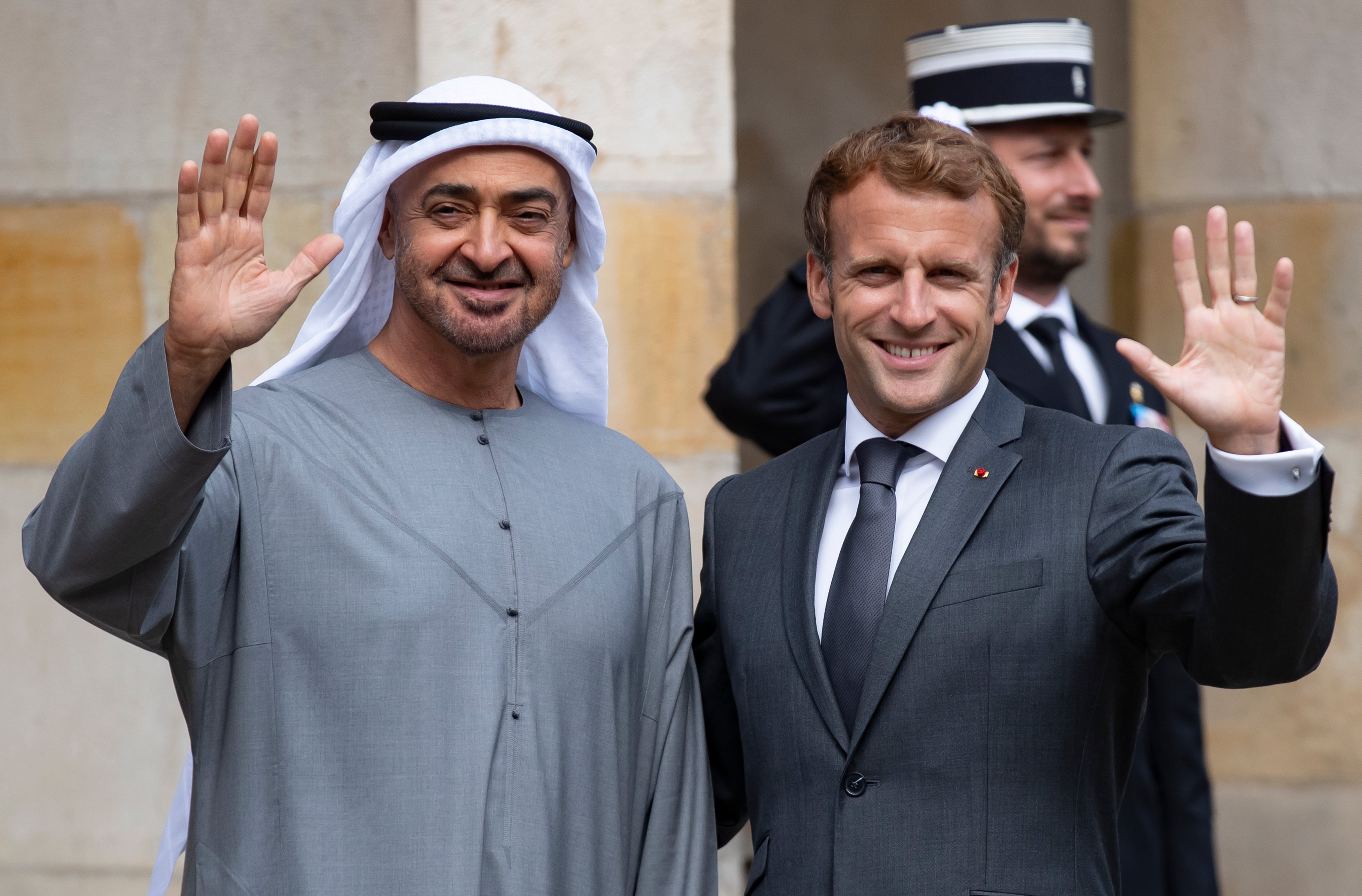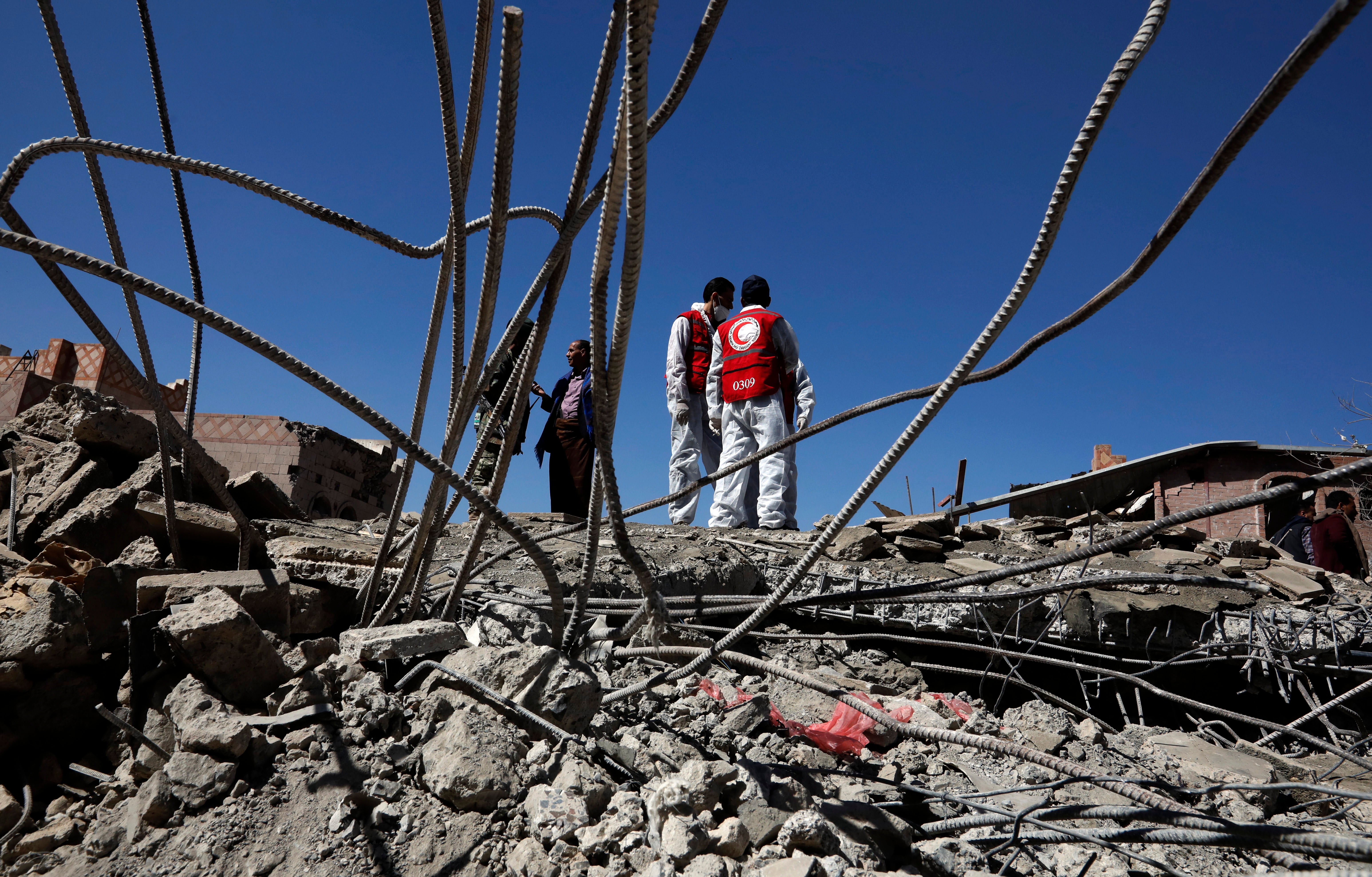Why the UAE is the place to be for Macron and France
Culturally, economically and militarily, France’s relationship with UAE is central to Macron’s vision of the modern world, reports Sofia Barbarani

It’s no secret that French President Emmanuel Macron has a penchant for shuttle diplomacy – a strategy that over the years has seen the leader become involved to one degree or another in several conflicts, garnering him both praise and criticism.
Since his elections in 2017 Macron has often distinguished himself from his inward-looking European counterparts by taking on near-impossible tasks like mediating Libya’s civil war and failing and holding talks with Russian president Vladimir Putin on Monday to try and de-escalate the Ukraine crisis.
But far from limiting his so-called “diplomacy of audacity” to countries that are historically or geographically connected to France, Macron has also been busy strengthening France’s alliance with more far-flung states, like the United Arab Emirates, whose bilateral ties are just over a decade old.
The two countries see eye-to-eye on several issues across the Middle East and North Africa and the Mediterranean, including their shared support for Libyan National Army Leader Khalifa Haftar, and their backing of Greece in Cyprus.
The most recent show of military support took place last week when the French Ministry of Armed Forces announced it would reinforce the UAE’s air defence system, after several ballistic missile and drone attacks claimed by Yemen’s Iran-backed Houthi rebels rattled the quiet Gulf state.
"The United Arab Emirates was victim of serious attacks on its territory in January," French defence minister Florence Parly wrote on Twitter.
"In order to show our solidarity with this friendly country, France has decided to provide military support, in particular to protect the airspace against any intrusion."
But while France’s military support and arms sales to the UAE helps to deter Iranian attacks on the Gulf - Tehran has accused Paris of “destabilising” the region through its arms sales - the French government’s determination to lend a helping hand is rooted largely in the belief that over the next decade the Gulf will become ever more important to European interests.
Paris has not limited its relationship in the Gulf to just UAE. It has also forged close ties to Qatar, through commercial and sporting activities, including football club Paris Saint-Germain, owned by a subsidiary of Doha’s sovereign wealth fund.
The reason for this is two-fold, explains Cinzia Bianco, a Research Fellow at the European Council on Foreign Relations.
“The first reason is the obvious increase in the Gulf’s importance around the region… the second reason is connectivity,” Bianco told The Independent. “The Gulf could very easily become the most important connectivity hub between Europe and Asia.”
With the right kind of railway infrastructure, the immense flow of goods from India, China or Europe that already stop in the GCC could then go straight to the Mediterranean via train, without having to pass through the Bab-el-Mandeb Strait or Suez Canal. “It’s a much safer and quicker route… the same goes for energy,” said Bianco.

And as the Gulf’s importance increases, Washington’s commitment is likely to lessen. This in turn could lead to a strategic vacuum quickly filled by countries like Russia or China, with whom the UAE has a comprehensive strategic partnership. Even newfound partner Israel is set to make diplomatic headway following the Abraham Accords. All of this would leave France and the EU on the sidelines.
“Abu Dhabi is more than ever seen as ‘the place to be’ for France,” said Heloise Fayet, a Research Fellow at the French Institute of International Relations.
However, it is not clear of the feeling is mutual: the Emiratis are “courted by many other countries, and France doesn’t appear on the list of major relations that the UAE intend to improve in the future”, she adds.
Despite the Emirati capital Abu Dhabi quickly becoming “the place to be” both regionally and internationally, Brussels’ inability to form a collective strategy vis-à-vis the Gulf means the EU has is far from holding a place of honour among the Arab leaders.
A Brookings Institute report from 2021 described the European approach to the Gulf as one that “largely bypassed multilateral mechanisms and opted to deepen their relationships at a bilateral level”.

This, however, could begin to change in May this year when a collective EU strategy on the Gulf is expected to be released, according to a source aware of the ongoing process who asked to remain anonymous.
But until this happens, President Macron will continue to push forward alone for a close-contact foreign policy with the UAE through military support, arms sales, and cultural exchange in the form of the Louvre Museum - inaugurated in 2017 - and Sorbonne University in Abu Dhabi, as well as more than 600 operating French companies in the UAE. The Middle East Louvre has been described as “France’s largest cultural project abroad”.
“The UAE have appeared as a strong and reliable partner for France in the Gulf region, and more broadly in the Middle East, for more than 10 years now,” said Heloise Fayet of the French Institute of International Relations.
And this is unlikely to change any time soon.






Join our commenting forum
Join thought-provoking conversations, follow other Independent readers and see their replies
Comments